Loggerhead turtle facts!
How much do you know about these beautiful sea creatures?
Take a big breath and get ready to dive deep – because it’s time to meet one seriously cool sea creature with our loggerhead turtle facts!
Fast loggerhead turtle facts
Scientific name: Caretta caretta
Family name: Cheloniidae
Classification: Reptile
IUCN status: Vulnerable
Lifespan (in wild): 50+ years
Weight: 115kg
Body length: 90cm
Diet: Omnivores, but mostly jellyfish, molluscs and crustaceans
Habitat: Oceans
Range:

These incredible reptiles got their name from their oversized head, which looks a bit like – you guessed it! – a big log. They have a large, reddish-brown, hard shell, a pale yellow underbelly (or ‘plastron’) and four flippers with two (or sometimes three) claws on each.
Loggerhead turtles live in oceans all around the world, except in the coldest seas far north and south, near the Earth’s poles. They are the most common turtle species found in the Mediterranean, as well as in the coastal waters off the USA, where they can be seen swimming in the sea or nesting on sandy beaches.
So what’s on the menu for the lovely loggerhead? These magnificent marine creatures mostly feast on other ocean animals. Using their strong, powerful jaws, they crush and munch on crunchy critters such as clams, crabs, mussels and sea urchins. They also eat softer foods, too, including jellyfish, some types of fish and occasionally seaweed and brown algae called ‘sargassum’.
Like other species of sea turtles, such as the leatherback and green sea turtle, loggerheads migrate huge distances between their feeding grounds and their breeding-nesting sites. Believe it or not, every two or three years, a female turtle may travel over 12,000km back to the beach where she hatched as a baby. And it’s on this very same beach that she lays her own eggs as an adult…
When a female is ready to lay her eggs, she comes ashore and uses her front flippers to clear a spot in the dry sand. She then uses her hind flippers to dig her nesting hole, before gently laying the eggs inside.
The eggs hatch about 60 days later, and the new tiny turtles immediately make their way up through the sand, and wait just underneath the surface layer until nightfall. Once cooler temperatures signal that the sun has set, the hatchlings pop up and scurry toward the ocean, trying to avoid predators such as raccoons, crabs, snakes and birds along the way.
The youngsters who survive their treacherous trek to the sea drift amongst floating sargussum for some time, using the sargassum as both a protective cover and a food source. Clever, eh? Once they’re bigger and stronger, they venture to lagoons, bays and shallow coastal waters, where they expand their diet and continue to grow.
Today, these magnificent marine reptiles are classed as a Vulnerable species, with an estimated 60,000 nesting females left in the wild. A serious threat to loggerheads is accidental capture in fishing equipment (such as nets, long lines and shrimp trawls), along with pollution and destruction to their nesting beaches. Thankfully, charities and conservationist groups are working to protect these incredible creatures so that they have a future on our planet.
Credits – Loggerhead sea turtle on the beach: Michael Melford. Loggerhead sea turtle close-up: Bill Curtsinger. Loggerhead sea turtle swimming near the ocean floor: Brian J. Skerry. Loggerhead sea turtle swimming underwater: Brian J. Skerry
More Like Sea Life
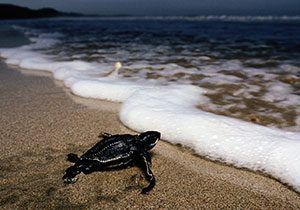
Leatherback turtle facts!
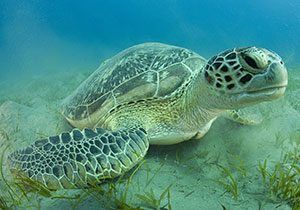
Green sea turtle facts!
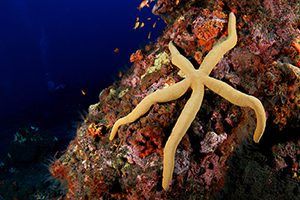
Starfish facts!
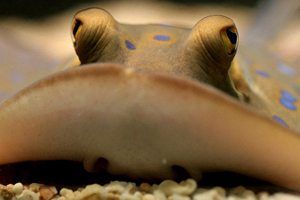







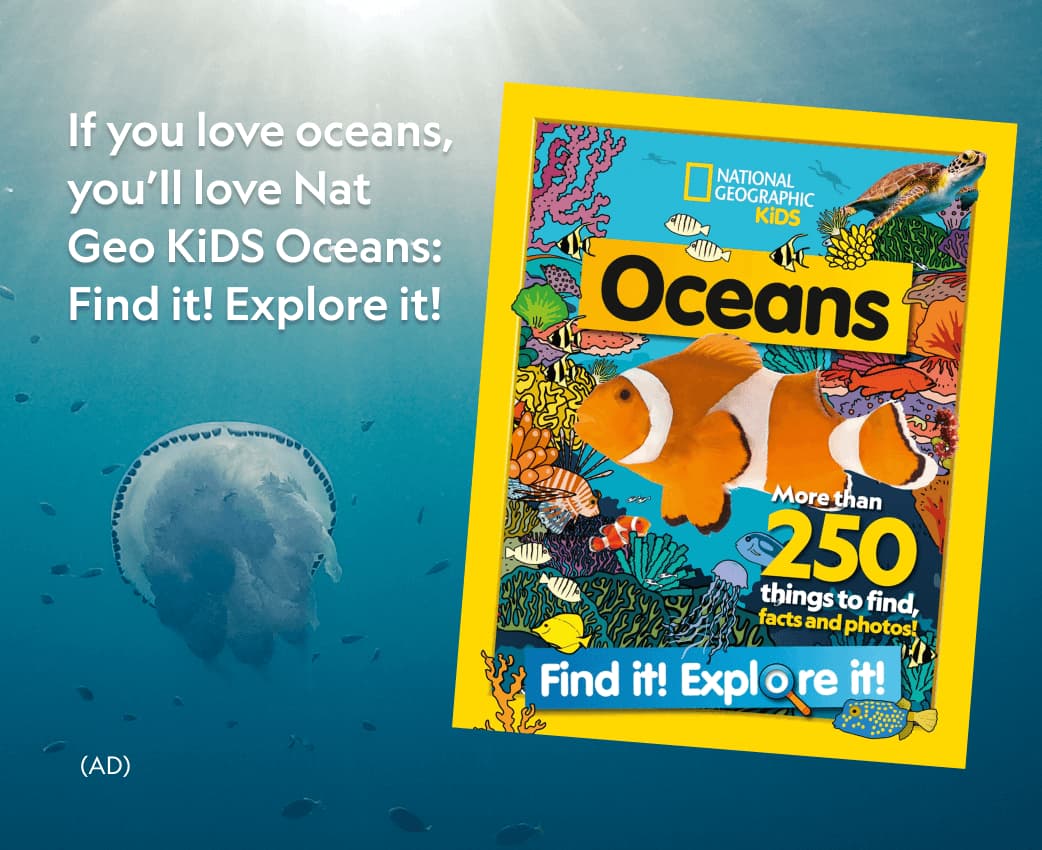





LEAVE A COMMENT
THANK YOU
Your comment will be checked and approved shortly.
WELL DONE,
YOUR COMMENT
HAS BEEN ADDED!
COMMENTS
Good
Wow
lets save them
I love animals
cool!
Let's Save Them!
cool
SAVE THE TURTLES!!!!!!
great
great
lets save turtles
Awesome!!!
cool
Let’s save Turtles!!!
sooo cute i luv turtles!
I can't believe how far loggerhead turtles travel!! They are amazing.
You really have some good information.
Wow great facts about the loggerhead turtle!!
these are great facts! thank you.
I love turtles, especially Loggerheads are the best! I learnt so much!
Loggerhead turtles are amazing! It is really impressive how far they travel every year.
LOL!
CUSTOMIZE YOUR AVATAR